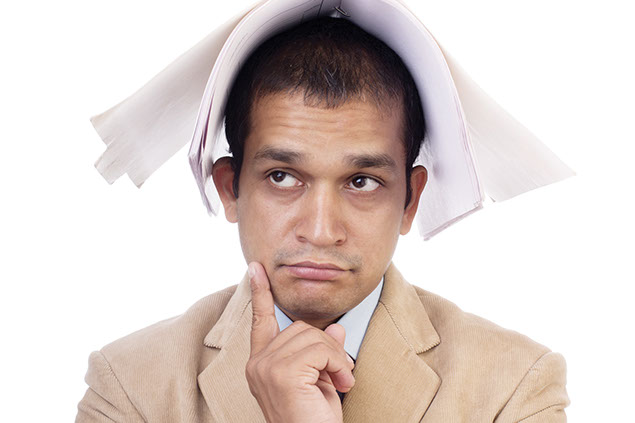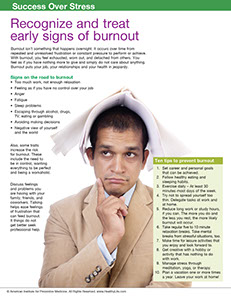SYMPTOM CHECKER
CONDITIONS
Male
Female
Child
Arm, Hand & Shoulder Concerns
Legs & Feet Concerns
Dental & Mouth Concerns
Ear & Nose
Eye Conditions
Head Conditions
Arm, Hand & Shoulder Concerns
Legs & Feet Concerns
Front
Back
Arm, Hand & Shoulder Concerns
Dental & Mouth Concerns
Ear & Nose
Eye Conditions
Head Conditions
Arm, Hand & Shoulder Concerns
Dental & Mouth Concerns
Ear & Nose
Eye Conditions
Head Conditions
Front
Back
Arm, Hand & Shoulder Concerns
Neck Links
Head & Neck Concerns
Arm, Hand & Shoulder Concerns
Neck Links
Head & Neck Concerns
Front
Back
Online Clinic
Wise Healthcare
Recognize and treat early signs of burnout
Print on Demand
Burnout isn’t something that happens overnight. It occurs over time from repeated and unresolved frustration or constant pressure to perform or achieve. With burnout, you feel exhausted, worn out, and detached from others. You feel as if you have nothing more to give and simply do not care about anything. Burnout puts your job, your relationships and your health in jeopardy.
Signs on the road to burnout
• Too much work, not enough relaxation
• Feeling as if you have no control over your job
• Anger
• Fatigue
• Sleep problems
• Escaping through alcohol, drugs, TV, eating or gambling
• Avoiding making decisions
• Negative view of yourself and the world
Also, some traits increase the risk for burnout. These include the need to be in control, wanting everything to be perfect and being a workaholic.
Ten tips to prevent burnout
1. Set career and personal goals that can be achieved.
2. Follow healthy eating and sleeping habits.
3. Exercise daily – At least 30 minutes most days of the week.
4. Try not to spread yourself too thin. Delegate tasks at work and at home.
5. Reduce long work or study hours, if you can. The more you do and the less you rest, the more likely burnout will occur.
6. Take regular five to 10 minute relaxation breaks. Take mental breaks from stressful situations, too.
7. Make time for leisure activities that you enjoy and look forward to.
8. Get creative with a hobby or activity that has nothing to do with work.
9. Manage stress through meditation, yoga, or therapy.
10. Plan a vacation one or more times a year. Leave your work at home!
Discuss feelings and problems you are having with your family, friends, and coworkers. Talking helps ease feelings of frustration that can feed burnout. It things do not get better seek professional help.
This website is not meant to substitute for expert medical advice or treatment. Follow your doctor’s or health care provider’s advice if it differs from what is given in this guide.
The American Institute for Preventive Medicine (AIPM) is not responsible for the availability or content of external sites, nor does AIPM endorse them. Also, it is the responsibility of the user to examine the copyright and licensing restrictions of external pages and to secure all necessary permission.
The content on this website is proprietary. You may not modify, copy, reproduce, republish, upload, post, transmit, or distribute, in any manner, the material on the website without the written permission of AIPM.
2021 © American Institute for Preventive Medicine - All Rights Reserved. Disclaimer | www.HealthyLife.com
















































